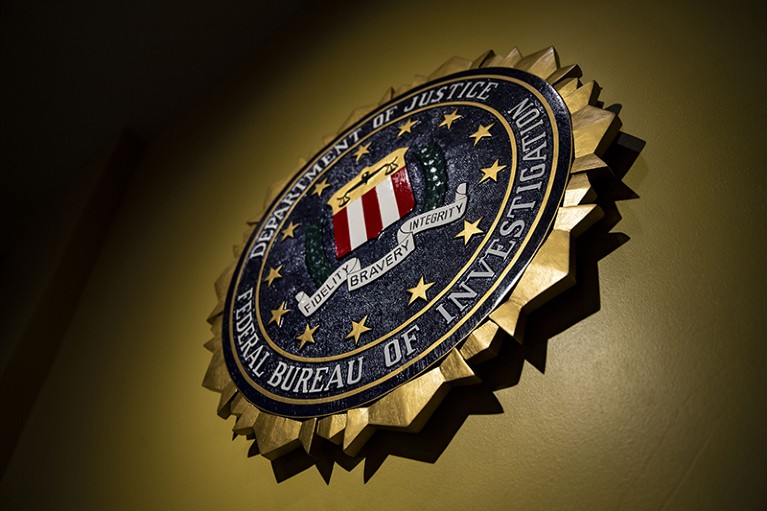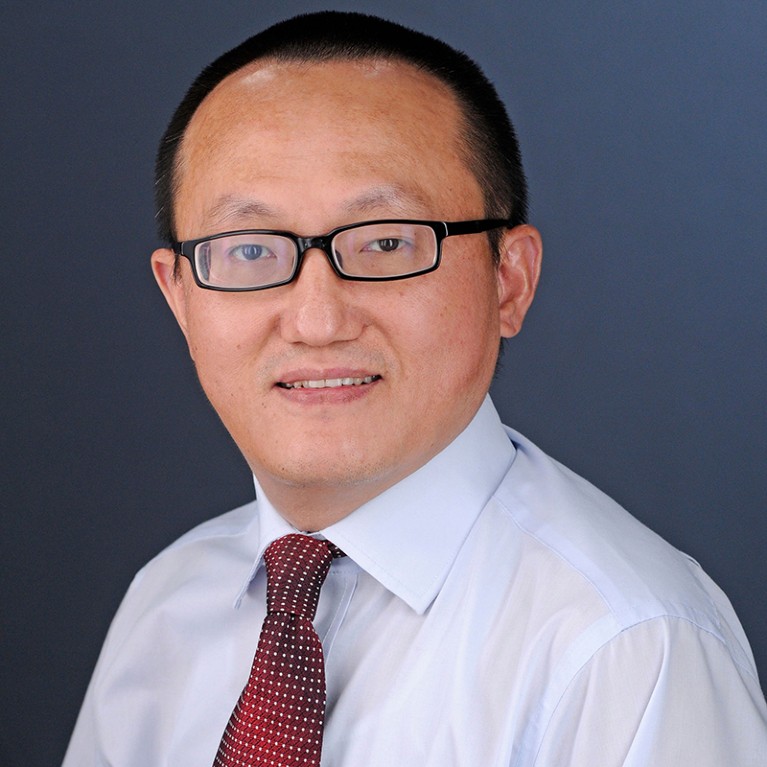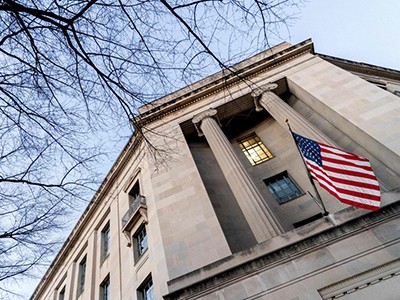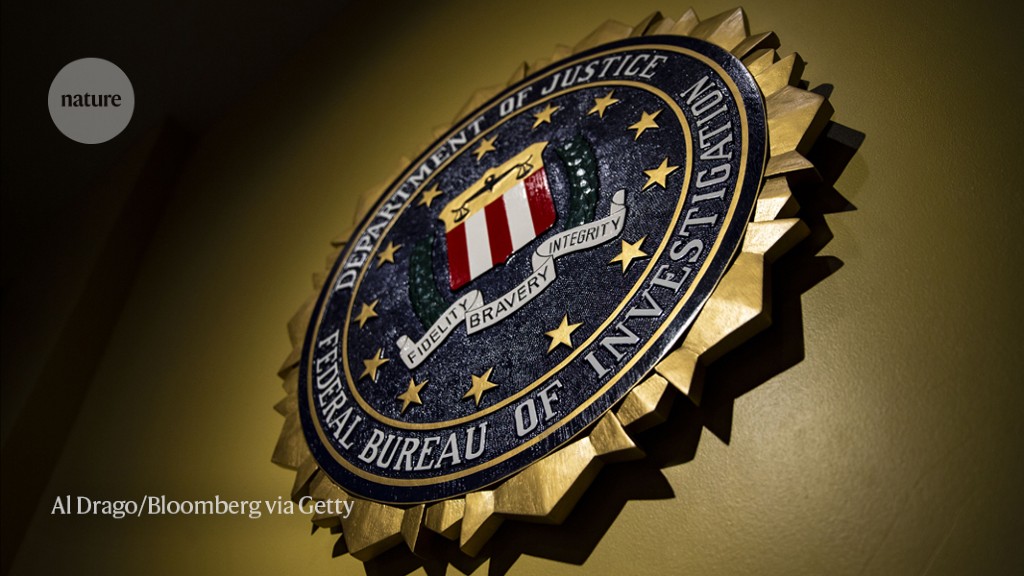Nan Yang
SENIOR MEMBER

- Joined
- May 1, 2010
- Messages
- 5,252
- Reaction score
- 1
- Country
- Location
Convictions reversed for US chemical engineer accused of hiding China ties
Judge acquits Feng ‘Franklin’ Tao on three of four charges — another blow for the US government’s former China Initiative programme.Natasha Gilbert

The US Department of Justice and the FBI arrested a number of researchers under the China Initiative, which was discontinued earlier this year.Credit: Al Drago/Bloomberg via Getty
A federal judge has reversed three of the four convictions handed down to US chemical engineer Feng ‘Franklin’ Tao by a jury in April. Tao, who is on unpaid leave from the University of Kansas (KU) in Lawrence, was accused of hiding ties to China. He is thought to have been the first academic researcher arrested under the China Initiative — a controversial US government programme that ran from 2018 to 2022 and sought to protect US laboratories and businesses from economic espionage.

Jury finds University of Kansas chemical engineer guilty of hiding ties to China
The reversal follows a string of failures by the US Department of Justice (DoJ) to bring strong convictions under the umbrella of the China Initiative, and could mark a new chapter for the US scientists of Chinese heritage who have feared government surveillance in the wake of the programme’s launch.
Peter Zeidenberg, one of Tao’s lawyers at the firm ArentFox Schiff in Washington DC, told Nature in a statement that he is “extremely gratified” about the ruling. “This will hopefully drive a final stake through the heart of these China Initiative cases,” he adds.
‘Insufficient’ evidence
In August 2019, Tao was indicted for failing to disclose on a KU conflict-of-interest form that he was working at Fuzhou University (FZU) in China. The DoJ also indicted him for not disclosing links to China while receiving federal funding from two US agencies — the National Science Foundation and the Department of Energy. The prosecution brought eight separate charges against Tao.
Feng Tao has been acquitted on three counts of fraud.Credit: Kelsey Kimberlin/AP/Shutterstock
After a two-week trial that ended on 7 April, a jury for the US district court for Kansas threw out four of the charges, but found Tao guilty on three counts of wire fraud — financial fraud committed using information communications technology — and one count of making a false statement. US district judge Julie Robinson, however, requested a briefing on the government’s evidence and did not set a sentencing date.
On 19 September, Robinson overturned the wire-fraud convictions, finding that the DoJ’s evidence was “legally and factually insufficient” to support them. However, she upheld the conviction stemming from Tao not disclosing his employment at FZU on KU’s conflict-of-interest form.

The controversial China Initiative is ending — researchers are relieved
“Though Tao was deceptive in not disclosing his activities at FZU, there was no evidence that Tao obtained money or property through the alleged scheme to defraud”, which is required for an act to constitute wire fraud, wrote Robinson in her decision.
Tao now awaits sentencing, which will probably take place in January, Zeidenberg says. At that point, Tao and his legal team will decide whether to appeal.
Erinn Barcomb-Peterson, head of news and media relations for KU, declined to comment to Nature on whether the university will reinstate Tao to its faculty. “Because this is an ongoing criminal and personnel matter, we are not able to comment further on this issue,” she wrote in a statement.
Lessened sentences and acquittals
Researchers and civil-liberties champions have welcomed the ruling, pointing out that Tao’s case is yet another example of charges brought against academic researchers under the China Initiative not holding up because they were weak.Earlier this week, Staci Yandle, a judge for the Southern District of Illinois, rejected the DoJ’s request to impose a prison sentence on mathematician Mingqing Xiao for filing incorrect tax returns and not disclosing a foreign bank account. Instead, Yandle sentenced Xiao to one year of probation and fined him US$600. (In May, a jury had found Xiao guilty of the tax and bank-account violations, but not guilty of making a false statement about his links to Chinese institutions on a grant application.) Xiao is on leave from Southern Illinois University in Carbondale.

‘I lost two years of my life’: US scientist falsely accused of hiding ties to China speaks out
In September last year, nanotechnology researcher Anming Hu at the University of Tennessee, Knoxville, was acquitted of all charges against him following a mistrial, after being accused of hiding ties with China and being under house arrest for more than a year.
Jenny Lee, a social scientist at the University of Arizona in Tucson who studies research collaborations and geopolitics, has urged the DoJ to drop cases such as Tao’s, which she says lack solid evidence. “They are a waste of taxpayer money and have devastated careers, not to mention have produced a chilling effect throughout the scientific community,” she says.
Frank Wu, a legal specialist on the China Initiative and president of Queens College at the City University of New York, agrees, calling the cases “flawed”.
In February, the DoJ shut down the China Initiative, citing concerns that the programme seemed to be biased against people of Chinese descent and that it undermined international research collaboration. The agency replaced it with a broader plan called the Strategy for Countering Nation-State Threats, to keep an eye on the activities of additional countries, including Russia, Iran and North Korea.

The number of researchers with dual US–China affiliations is falling
Lee says the government should provide compensation to the innocent people whose lives have been turned upside down by the China Initiative. The DoJ did not respond to Nature’s request for comment by the time this story was published.
“It deeply saddens me to see that Feng Tao and his family suffered so much,” says Gang Chen, a mechanical engineer at the Massachusetts Institute of Technology in Cambridge. Chen was arrested under the China Initiative in January 2021, but the DoJ dropped the charges early this year.
“We need to hold our government accountable, stop these unjust prosecutions and rebuild trust within the Asian American community, starting with apologizing to the many impacted scientists and families whose lives have been ruined,” Chen says.

Convictions reversed for US chemical engineer accused of hiding China ties
Judge acquits Feng ‘Franklin’ Tao on three of four charges — another blow for the US government’s former China Initiative programme.
